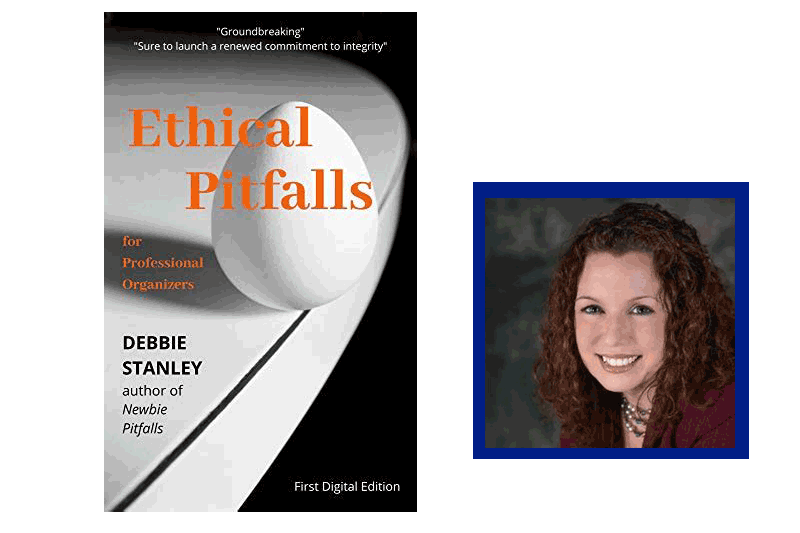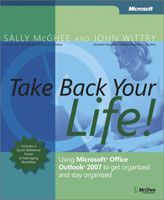Book Review: Ethical Pitfalls for Professional Organizers
This page may contain links to Amazon.com or other sites from which I may receive commission on purchases you make after clicking on such links. Read my full Disclosure Policy

When you joined NAPO, POC, or another professional association, you agreed to follow the Code of Ethics of that organization. You probably scanned the Code of Ethics quickly and figured you’d have no problem doing the right thing, right? You’re a good person, after all! But there’s a lot more to ethics than just being a good person.
I became aware that things weren’t quite that simple when a discussion about referral fees took place at a POC Conference several years ago. Some members felt it was wrong to ask another member to pay for referrals, whereas others believed it was unethical for a member who doesn’t invest a lot of money and effort into marketing their business to expect someone who does to just hand over referrals without compensation. It became clear that there was no absolute right or wrong answer.
Debbie Stanley’s Ethical Pitfalls for Professional Organizers describes a number of other sticky scenarios you may encounter when interacting with your peers, as well as issues that may arise when working with clients, managing your business, dealing with the media, and even when you’re off-duty. In some cases, you’ll probably feel confident that you would handle the situation appropriately, but there will be many others that you might not have even considered as having ethical ramifications.
You won’t find the answers to these dilemmas within the pages of this book. What you will find is a nine-step process to guide you in making ethical decisions. You’ll also find an explanation of the meaning of professional ethics and how they apply to the organizing industry, as well as helpful tips on dealing with someone you feel has behaved in an unethical manner.
It’s not difficult to see why the Board of Certification for Professional Organizers suggests reading Ethical Pitfalls before writing the certification exam. It’s a thought-provoking look at a very serious topic that deserves much more attention than it gets. I highly recommend that you read this book, whether you intend to pursue certification or not. At only 100 pages, it won’t demand a lot of your time, but it will definitely change the way you look at things.
Have you read this book? What did you think about it?




I don’t think I’ve read this, but I should check it out. I’ve found with so many aspects of this profession that there is a lot more to it that I initially thought. The fact that we work so intimately with clients means operating in an ethical manner is critical!
I think you’ll find it very eye-opening (not that I think your ethics are in question!).
Debbie Stanley is a wonderful organizer, teacher, and writer. I read this book years ago, but you reminded me how useful it is. I’d like to reread it again, and I appreciate you featuring it.
Some of my favorite discussions and classes are on boundaries and ethics. It’s always fascinating to see how differently we view things. These types of books and learning are excellent ways of solidifying your beliefs and ways of operating. The concepts are helpful professionally and personally.
I’ve also seen situations where two organizers viewed something quite differently, yet both of their arguments had merit. And solidifying your beliefs and ways of operating, which you mention, will help you make the right decision when you’re torn in two directions.
This brings me back to my business ethics class in college. It was a part of my International Business degree and very helpful. I haven’t read this book, but it does sound like something professional organizers and anyone, for that matter, should read.
Yes! I am two courses away from a Certificate in Counselling Techniques (I switched when they offered a new program that was a better fit for my work at the time, as an employment counsellor). One of the courses I didn’t take was about Ethics, and I think it would have been very useful.
Thank you for the book suggestion. I’ll look it up.
If I had a copy, I’d lend it to you, but I borrowed it from someone else.
Wow, it’s been many years since I read Debbie’s book, but I’ve attended a few of her webinars on ethics for professional organizers over the years. She is stellar at explaining subtle and nuanced issues in a way that brings essential guiding concepts into the light.
You’re so lucky that you got to hear her speak, especially multiple times!